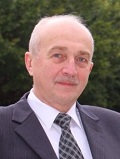After the tradition of previous ILCCs, organized is a one-day course for new comers to the field (young researchers and students). The course consists of six lectures by world-known experts (45 min each). The course starts at 9:30 and ends 16:30 on July 22 (before the Welcome reception).
| Lecture 1 | 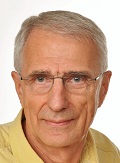 Prof. Slobodan ZUMER (University of Ljubljana & Jozef Stefan Institute, SLOVENIA) |
Continuum physics of liquid crystals
Liquid crystals are fluids with long range orientational order and no or partial translational order. Continuum descriptions justified on scales much larger than basic entities can based on topological properties of the ordering field, anisotropic elasticity & viscosity, intrinsic deformations, and effects of external constrains provide basic understanding of complex liquid crystal defect structures and dynamics. |
| Lecture 2 | 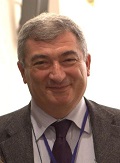 Prof. Claudio ZANNONI (Università di Bologna, ITALY) |
Modelling and simulations of liquid crystals from molecules to devices
Modelling and computer simulations have shown a huge development in the last few years, due also to the increase in computer power and resources. The lecture will introduce state of the art Monte Carlo and Molecular Dynamics simulations at mesoscopic, molecular and atomistic, predictive, level together with recent examples. |
| Lecture 3 | 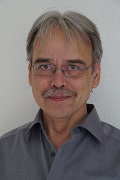
Prof. Carsten TSCHIERSKE |
Chirality and mirror-symmetry breaking in liquid crystals
The relations between molecular structure and spontaneous mirror symmetry breaking in liquid and liquid crystalline phases formed by permanently and transiently chiral (“chiral” and “achiral”) molecules will be discussed with focus on recent developments in the fields of bent-core mesogens, chiral cubic, tetragonal and isotropic liquid phases of polycatenar mesogens and the twist-bend nematic phases. Relations between the distinct classes of mirror-symmetry broken LCs and general design rules will be worked out. |
| Lecture 4 | 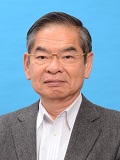
Prof. Tomiki IKEDA |
Liquid crystals as functional materials
Liquid crystals (LCs) show long-range order in alignments, which affords LC materials anisotropic nature in their physical properties. This anisotropic nature of LC materials as well as their fluidity leads to exclusive usage of LCs as display materials. Beyond LC displays, LCs are also promising as functional materials thanks to their anisotropic and self-assembling nature. In this lecture, various functional materials will be presented on the basis of LCs. |
| Lecture 5 |
Prof. Vladimir CHIGRINOV |
Liquid crystal applications: new challenges
Liquid crystal (LC) devices for displays and photonics are dominating in the market and will be the basic technology for advanced display and electronics in the nearest 10 years. New liquid crystal devices include ORW E-paper, field sequential color ferroelectric liquid crystal (FLC) projectors, photo-patterned quantum rods and 100% polarizers, q-plates, sensors, switchable lenses, windows with voltage controllable transparency, security films, switchable antennas. |
| Lecture 6 | 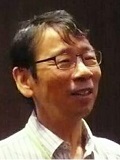
Prof. Kenichi YOSHIKAWA |
How does crystalline ordering create biological functions?
In living cellular systems, there exist many examples on parallel ordering of biomolecules, including bilayer membrane. Here, we may argue the possible biological importance on the occurrence of liquid-crystalline type ordering in giant genomic DNA molecules above the size of several tens kilo base pairs.
|
Registration with payment* besides the registration to ILCC2018 is necessary to attend the course. Due to limited room capacity, the registration is on first-come first-served basis.
*Fee covers, i) attendance to all lectures, ii) reference materials, and iii) boxed lunch.

